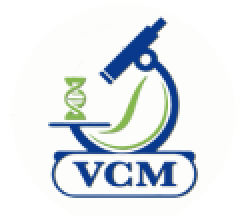Đào tạo & nghiên cứu
Microbiological Challenges and Antimicrobial Resistance in Hospitalized Community-Acquired Pneumonia in Vietnam
H.T.Pham[1]*, D.K.Tran[1,2], Q.D.Ha[1,2], V.H.Pham[1,3]
[1] Vietnam Research and Development Institute of Clinical Microbiolgy, Vietnam
[2] Nam Khoa Biotek Co. Ltd., Vietnam
[3] Phan Chau Trinh University, Vietnam
Background
Hospitalized community-acquired pneumonia (CAP), involving S. pneumoniae, H. influenzae, Gram-negative rods and Gram-positive cocci, presents a severe health concern due to their ability to develop resistance to commonly used or broad-spectrum antibiotics. This has been evidenced by findings from EACRI 2016, SOAR 2009-2011, and SOAR 2016-2018.
Aims of the study
This study aims to comprehensively address the challenges presented by microbiological pathogens in the context of managing hospitalized CAP. The focus is on understanding the antimicrobial resistance landscape, especially in the Vietnamese healthcare setting, spanning from 2009 to the present.
Materials and methods
The study reviews multiple research initiatives, including EACRI 2016, SOAR 2009-2011, and SOAR 2016-2018, to analyze the prevalence and mechanisms of antimicrobial resistance. Data from major hospitals, such as Nguyen Tri Phuong hospital, Cho Ray, Bach Mai, National Hospital of Pediatrics, and others, contribute to a holistic understanding of the situation.
Results
The studies reveal an escalating prevalence of antibiotic resistance among these pathogens with diverse genetic mechanisms, creating significant hurdles in treating the condition. S. pneumoniae presents a formidable challenge with its resistance to Fluoroquinolones and an elevated Minimum Inhibitory Concentration for 90% (MIC90) of Amoxicillin and Penicillin. H. influenzaeexhibits antibiotic resistance with classic beta-lactamase production. Gram-negative rods, particularly those belonging to the ESKAPE group, show resistance to multiple antibiotics, and the emergence of carbapenemase-producing Enterobacteriaceae is notable. The study also sheds light on the resistance patterns of A. baumannii and P. aeruginosa, which is carbapenem resistance. Gram-positive cocci demonstrate escalating resistance to Vancomycin. Consequently, physicians require a comprehensive understand of the situation, and widely accepted guidelines need to be properly applied and adjusted as needed. The implementation of an essential and cost-effective method, such as Multiplex real-time Polymerase Chain Reation (MLP-rPCR), is crucial.
Conclusions
In the context of rising antibiotic resistance, a thorough understanding of theses challenges is imperative, and adjustments to widely accepted guidelines is necessary. The implementation of MLP-rPCR offers the timely identification of causative pathogens and their antimicrobial resistance characteristics, providing clinicians with rapid, targeted and valuable insights for an effective combat against this issue.
Keywords: Antimicrobial resistance, hospitalized community-acquired pneumonia


